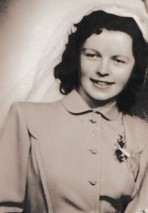The illusion of safety

Stáhnout obrázek
Věra Pittermannová, née Holubová, was born on 7 April 1935 in Prague. She attended primary school during World War II, first in Prague and later in the village of Slabce, where her family moved to stay with relatives. Her father owned two shops in Prague and her maternal grandparents ran a private farm. They lost their shops and a farm after February 1948. She wanted to become a teacher, but after the February coup she was unable to study at a grammar school because her father was a tradesman and her grandparents were private farmers. She studied at a post school and a two-year business academy in Karlín. After her husband emigrated to the West following their divorce, she was pressured by State Security (StB) and underwent two interrogations. State Security suspected that she wanted to emigrate to her ex-husband.




